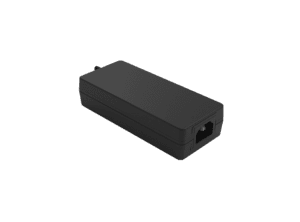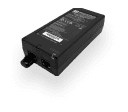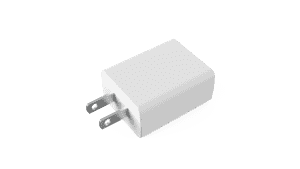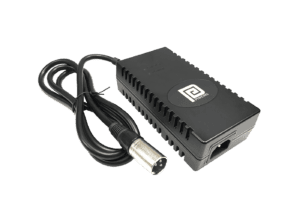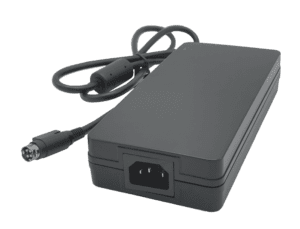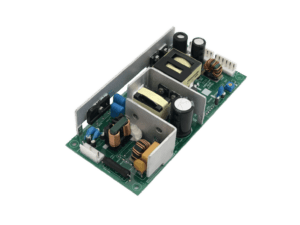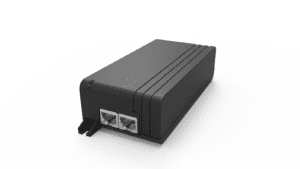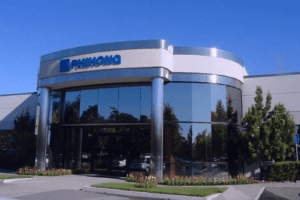BLOG
ISO Compliance: An Introduction to ISO Facility Standards and Their Impact on PoE Manufacturing
Table of contents

What Are ISO Facility Standards?
ISO Facility Standards are internationally recognized guidelines that establish global best practices for managing and optimizing facility environments. These standards ensure consistency, safety, efficiency, and quality, all of which are critical for maintaining robust and reliable facility operations, especially in the technology sector. For Power over Ethernet (PoE) manufacturers, adhering to ISO standards is vital. These standards cover a wide range of areas, including:
- Quality Management (ISO 9001): Ensuring that products and services consistently meet customer and regulatory requirements.
- Environmental Management (ISO 14001): Helping organizations minimize their environmental impact and improve sustainability practices.
- Health and Safety Management (ISO 45001): Establishing a framework to promote employee safety and well-being in the workplace.
ISO standards are developed through a consensus process involving experts from various industries, ensuring that they are applicable and beneficial across different contexts. For businesses looking to improve their processes, enhance their reputation, and achieve better operational efficiency, ISO compliance serves as a powerful tool.
ISO Standards Relevant to PoE Manufacturers
Several ISO standards play a vital role in the manufacturing of PoE products. Familiarizing yourself with these standards is essential, as they are crucial for ensuring product quality, safety, and marketability. Some key ISO standards to consider include:
ISO 9001 (Quality Management Systems)
ISO 9001 is a globally recognized standard that provides a comprehensive framework for establishing and maintaining effective quality management systems (QMS) in organizations. For PoE manufacturers, compliance with ISO 9001 ensures that all aspects of the manufacturing process, from design to production and delivery, adhere to high-quality standards. This standard emphasizes customer satisfaction, continuous improvement, and a process-oriented approach. By implementing ISO 9001, manufacturers can systematically monitor and improve their processes, reduce the likelihood of defects, and enhance product reliability.
ISO 14001 (Environmental Management Systems)
ISO 14001 focuses on environmental management systems (EMS) and provides a framework for organizations to identify, manage, monitor, and improve their environmental operating procedures. For PoE manufacturers, compliance with ISO 14001 is important for maintaining sustainable practices that minimize environmental impact during production. This includes initiatives to reduce energy consumption, manage waste effectively, and promote the use of eco-friendly materials. By adhering to ISO 14001, PoE manufacturers can demonstrate their commitment to sustainability, which is increasingly important to consumers and regulatory bodies.
ISO 45001 (Occupational Health and Safety Management Systems)
ISO 45001 is the international standard for occupational health and safety (OH&S) management systems. It provides a framework for organizations to ensure a safe and healthy working environment by proactively identifying and managing workplace hazards. For PoE manufacturers, compliance with ISO 45001 is critical for protecting employees from potential safety risks associated with the manufacturing process. This includes ensuring proper training, implementing safety protocols, and fostering a culture of safety within the organization. By prioritizing worker safety, manufacturers can reduce workplace accidents, improve employee morale, and enhance productivity, ultimately contributing to a more efficient production process.
ISO/IEC 17025 (Testing and Calibration Laboratories)
ISO/IEC 17025 is crucial for the testing and calibration of Power over Ethernet (PoE) products, as it sets the requirements for the competence of laboratories performing these tests. Accredited laboratories ensure accurate and reliable results when evaluating the performance and safety of PoE devices, such as injectors and powered devices, against industry standards like IEEE 802.3af, 802.3at, and 802.3bt. This accreditation not only confirms compliance with regulatory requirements but also helps identify potential risks, mitigating issues related to electrical safety and performance failures. By utilizing ISO/IEC 17025-accredited testing, manufacturers can enhance market confidence in their PoE products, ensuring they meet quality expectations and operate reliably in real-world applications.
How Can PoE Manufacturers Achieve ISO Compliance?
Achieving ISO compliance requires a structured approach that integrates these standards into every aspect of the manufacturing process. Here are the key steps PoE manufacturers can take to ensure compliance:
- Gap Analysis: Conduct a thorough analysis of current manufacturing processes to identify areas where they fall short of ISO standards. This helps manufacturers understand what changes are needed to achieve compliance.
- Develop a Compliance Plan: Create a detailed plan that outlines the steps needed to achieve ISO compliance. This plan should include specific goals, timelines, and responsibilities, ensuring that all aspects of the manufacturing process are addressed.
- Implement Process Improvements: Update manufacturing processes to align with ISO standards. This might involve upgrading equipment, revising quality control procedures, or adopting new environmental practices in line with ISO 14001.
- Employee Training: Ensure that all employees are trained on ISO standards and understand their role in maintaining compliance. This includes training on quality management, environmental practices, and workplace safety.
- Regular Audits: Conduct regular internal audits to monitor compliance with ISO standards. These audits should assess whether manufacturing processes continue to meet the required standards and identify any areas for improvement.
- Pursue Certification: Once the necessary changes have been made, consider seeking formal ISO certification. This not only demonstrates compliance but also provides a competitive advantage in the market.
What Are the Benefits of ISO Compliance for PoE Manufacturers?
ISO compliance offers numerous advantages for PoE manufacturers, including:
- Enhanced Product Quality: ISO 9001 compliance ensures that PoE products are manufactured to high standards, reducing the likelihood of defects and enhancing reliability. This leads to greater customer satisfaction and loyalty.
- Global Market Access: Achieving ISO certification opens doors to global markets, as many regions and industries require compliance with specific ISO standards. This expands the potential customer base for PoE products.
- Environmental Sustainability: ISO 14001 compliance helps PoE manufacturers reduce their environmental impact, aligning with global sustainability goals. This not only benefits the environment but also enhances the company’s reputation as a responsible manufacturer.
- Improved Safety: Compliance with ISO 45001 ensures that manufacturing facilities maintain a safe working environment, reducing the risk of accidents and injuries. This fosters a culture of safety and well-being among employees.
- Competitive Advantage: ISO certification is a recognized mark of quality and reliability. For PoE manufacturers, achieving ISO compliance provides a competitive edge, differentiating them from competitors who may not meet these standards.
- Customer Trust: ISO compliance builds trust with customers and partners, as it demonstrates a commitment to maintaining high standards in PoE product manufacturing. This can lead to increased sales and long-term business relationships.
What Challenges Might PoE Manufacturers Face in Achieving ISO Compliance?
While ISO compliance offers significant benefits, PoE manufacturers may face challenges during the process, including:
- Resource Allocation: Achieving ISO compliance requires time, effort, and financial resources. Manufacturers must invest in upgrading processes, training employees, and potentially modifying facilities to meet ISO standards.
- Complexity of Standards: Understanding and implementing ISO standards can be complex, particularly for smaller manufacturers. Ensuring that all processes align with the required standards may require significant expertise and support.
- Maintaining Compliance: ISO compliance is an ongoing process, requiring regular audits and continuous improvement. Manufacturers must stay vigilant to ensure that their processes remain aligned with ISO standards over time.
Balancing Innovation and Compliance: While ISO standards provide a framework for quality and safety, they may impose constraints on innovation. Manufacturers need to find a balance between adhering to standards and pursuing new technologies and practices in PoE product development.
CLIENT'S QUOTE
Phihong's Power-Over-Ethernet solutions have transformed our network, boosting efficiency and reducing costs. Their seamless integration has simplified both installation and maintenance.
Explore More with Phihong USA
As we conclude our exploration of PoE technology, it’s clear that this field is experiencing unprecedented growth. For over 50 years, Phihong has been at the forefront of innovation, serving Fortune 500 companies across various industries as a leading power supply manufacturer for OEMs.
Phihong’s leadership, particularly in advanced technologies like Power over Ethernet, extends to active contributions in the development of IEEE PoE standards. This involvement underscores our commitment to innovation and dedication to providing cutting-edge power solutions that will shape the future of technology.
In addition to custom power supply solutions, Phihong offers a diverse range of products, including:
- Power over Ethernet (PoE) Solutions: PoE injectors, splitters, media converters, and more
- AC/DC Adapters and Power Supplies: USB adapters, desktop adapters, industrial-grade power supplies, and more
- Battery Chargers: Chargers for lithium-ion and lead-acid batteries
- Medical Power Supplies: Specialized power supplies that meet stringent healthcare requirements
By partnering with Phihong USA, you are choosing a trailblazer in power technology. If you’re an OEM looking for a custom PoE solution or just looking for a quality product, call us today: 510-445-0100 or email us at usasales@phihongusa.com. We look forward to collaborating with you.

Contact Our Team Today!
Our dedicated sales team and international partners are prepared to support you with your latest projects and initiatives globally.
FAQ
What are ISO Facility Standards, and why are they important for PoE manufacturers?
ISO Facility Standards are internationally recognized guidelines that outline best practices for managing and optimizing facility environments across various industries. These standards are critical in ensuring consistency, safety, efficiency, and quality in operations, which are especially vital for Power over Ethernet (PoE) manufacturers. Adhering to ISO standards helps PoE manufacturers streamline their processes, reduce waste, and enhance overall product reliability. Compliance with these standards fosters a culture of continuous improvement and positions manufacturers as leaders in quality assurance, ultimately leading to increased customer satisfaction and loyalty. Additionally, being ISO compliant significantly enhances a company’s reputation, making it more appealing to potential clients and partners who prioritize quality and safety in their procurement processes. In an increasingly competitive market, demonstrating adherence to ISO Facility Standards can serve as a key differentiator for PoE manufacturers, influencing customer choices and strengthening brand loyalty.
Which ISO standards are particularly relevant for PoE manufacturing?
Several ISO standards are crucial for PoE manufacturers, each addressing different facets of the manufacturing process. ISO 9001, or Quality Management Systems, establishes a comprehensive framework for ensuring that products consistently meet customer and regulatory requirements. This standard emphasizes quality control and continuous improvement, meaning that PoE manufacturers must implement systematic processes to monitor and enhance production quality. ISO 14001, focused on Environmental Management Systems, is essential for minimizing environmental impacts and promoting sustainable practices. Compliance with this standard allows PoE manufacturers to identify and manage their environmental responsibilities, such as reducing energy consumption and managing waste effectively during production. ISO 45001, which addresses Occupational Health and Safety Management Systems, is vital for maintaining a safe working environment. This standard helps PoE manufacturers proactively identify workplace hazards, ensuring employee safety and well-being, which can lead to improved morale and productivity. Finally, ISO/IEC 17025 is crucial for ensuring the accuracy and reliability of testing and calibration processes for PoE products. Accredited laboratories adhering to this standard help manufacturers verify that their products meet industry performance and safety standards, which is crucial for market confidence and compliance with regulatory requirements.
What are the main benefits of ISO compliance for PoE manufacturers?
ISO compliance provides numerous benefits that can significantly enhance a PoE manufacturer’s operations and market presence. Firstly, enhanced product quality is achieved through adherence to ISO 9001 standards, which ensure that products are produced to high standards, reducing defects and improving reliability. This commitment to quality leads to greater customer satisfaction and long-term loyalty, as clients feel confident in the products they are purchasing. Secondly, achieving ISO certification opens up access to global markets, as many regions and industries require ISO compliance for vendors. This expands the potential customer base for PoE products, leading to higher sales and greater brand recognition. Additionally, compliance with ISO 14001 helps manufacturers reduce their environmental footprint, aligning with global sustainability goals. This commitment to sustainability is increasingly valued by consumers and can enhance a company’s reputation as a responsible manufacturer. Moreover, ISO 45001 compliance ensures that manufacturers maintain safe working conditions, which reduces workplace accidents and injuries. A strong focus on safety promotes employee morale and productivity, creating a more efficient and engaged workforce. Furthermore, ISO certification is recognized globally as a mark of quality and reliability, providing a competitive edge for PoE manufacturers and differentiating them from competitors who do not meet these standards. Lastly, ISO compliance builds trust with customers and partners by demonstrating a commitment to maintaining high standards in product manufacturing, leading to increased sales, repeat business, and stronger long-term relationships.
What challenges might PoE manufacturers encounter while achieving ISO compliance?
While the benefits of ISO compliance are significant, PoE manufacturers may encounter various challenges during the process. One of the primary challenges is resource allocation; achieving ISO compliance requires considerable time, effort, and financial investment. Manufacturers must allocate resources for upgrading processes, training employees, and potentially modifying facilities to align with ISO standards, which can be daunting, particularly for smaller companies. Additionally, the complexity of ISO standards can pose a significant hurdle. Understanding and implementing these standards can be complicated, especially for organizations lacking the necessary expertise. Smaller manufacturers, in particular, may struggle with aligning their processes with the detailed requirements of these standards, necessitating external support or consulting services. Another challenge is maintaining compliance, as ISO adherence is not a one-time effort but an ongoing process that requires regular audits and continuous improvement. Manufacturers must remain vigilant to ensure their operations align with ISO standards over time, which can be resource-intensive and challenging. Finally, while ISO standards provide a solid framework for quality and safety, they may impose constraints on innovation. PoE manufacturers need to navigate the fine line between adhering to established standards and pursuing new technologies and practices in product development, a complex challenge that requires careful management and strategic planning to achieve a balance that supports both compliance and innovation.

